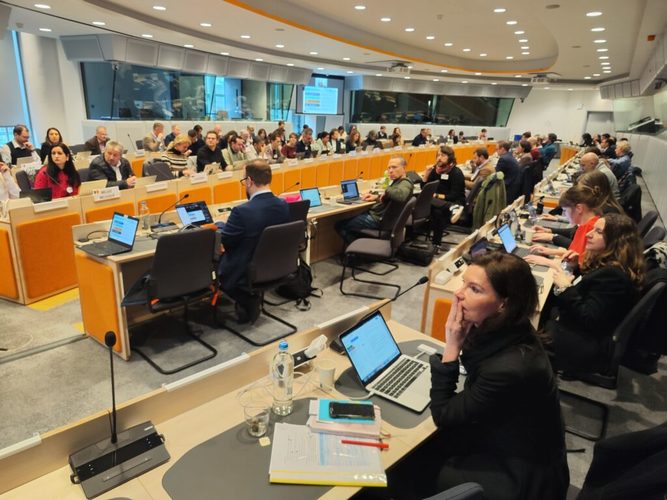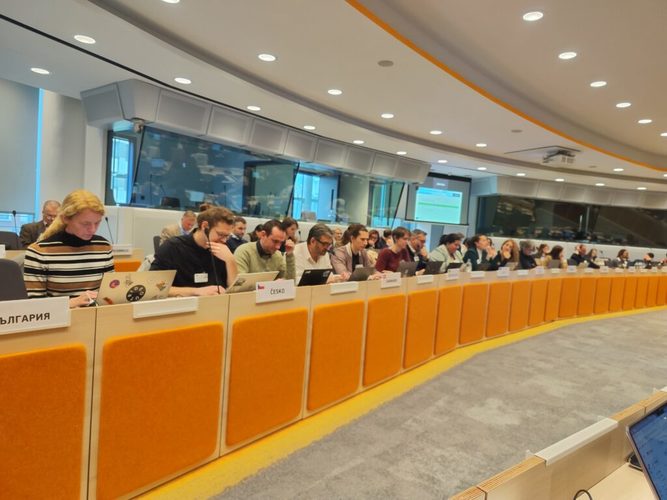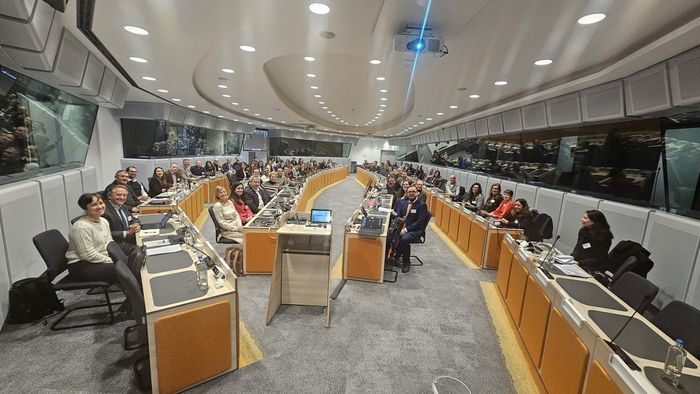Europe is fighting cancer
17.02.2025
Maciej Bobowicz, MD, PhD, represented the Medical University of Gdańsk at the European Cancer Imaging Initiative (EUCAIM project) consortium meeting in Brussels. During the meeting, whose scientific coordinator was Prof. Luis Martí-Bonmatí, the last two years of the project were summarized and the directions for further activities in building a pioneering pan-European federated infrastructure for scientific research in the field of imaging diagnostics were set. This infrastructure will allow medical image data owners to share their data, enabling industry, researchers and policy makers to drive progress in cancer diagnosis and treatment. During the meeting, key milestones of the EUCAIM project were presented, including:
· Launch of the Cancer Image Europe platform with 8 core services
· Collection of over 300,000 image series from over 47,000 patients.
· Launch of two secure data processing environments, the introduction of 40 tools related to the data preparation process, and three federated processing demonstrators.
· Implementation of a common data model and hyperontology, consisting of over 25,000 standard terms for seven cancer types.
· The engagement of over 80 users.
· Establishment of cooperation with 11 member states for the future European Digital Infrastructure Consortiums (EDIC) program.
The next day an event organised jointly by the European Commission, the EUCAIM project and the European Society of Radiology discussed how the European Cancer Imaging Initiative uses medical data and AI to support the fight against cancer. Two years after the launch of the European Cancer Imaging Initiative, Member States and stakeholders from research, innovation and healthcare organisations explored the possibilities of developing trusted AI tools for precision oncology and its role in the future European Health Data Space. The Medical University of Gdansk also participated in the event, represented by Maciej Bobowicz, MD, PhD.
Details available at the links: Cancer Image
Digital strategy
Archives
- Academic Year 2024/2025
- Academic Year 2023/2024
- Academic Year 2022/2023
- Academic Year 2021/2022
- Academic Year 2020/2021
- Academic Year 2019/2020
- Academic Year 2018/2019
- Academic Year 2017/2018
- Academic Year 2016/2017
- Academic Year 2015/2016
- Academic Year 2014/2015
- Academic Year 2013/2014
- Academic Year 2012/2013



